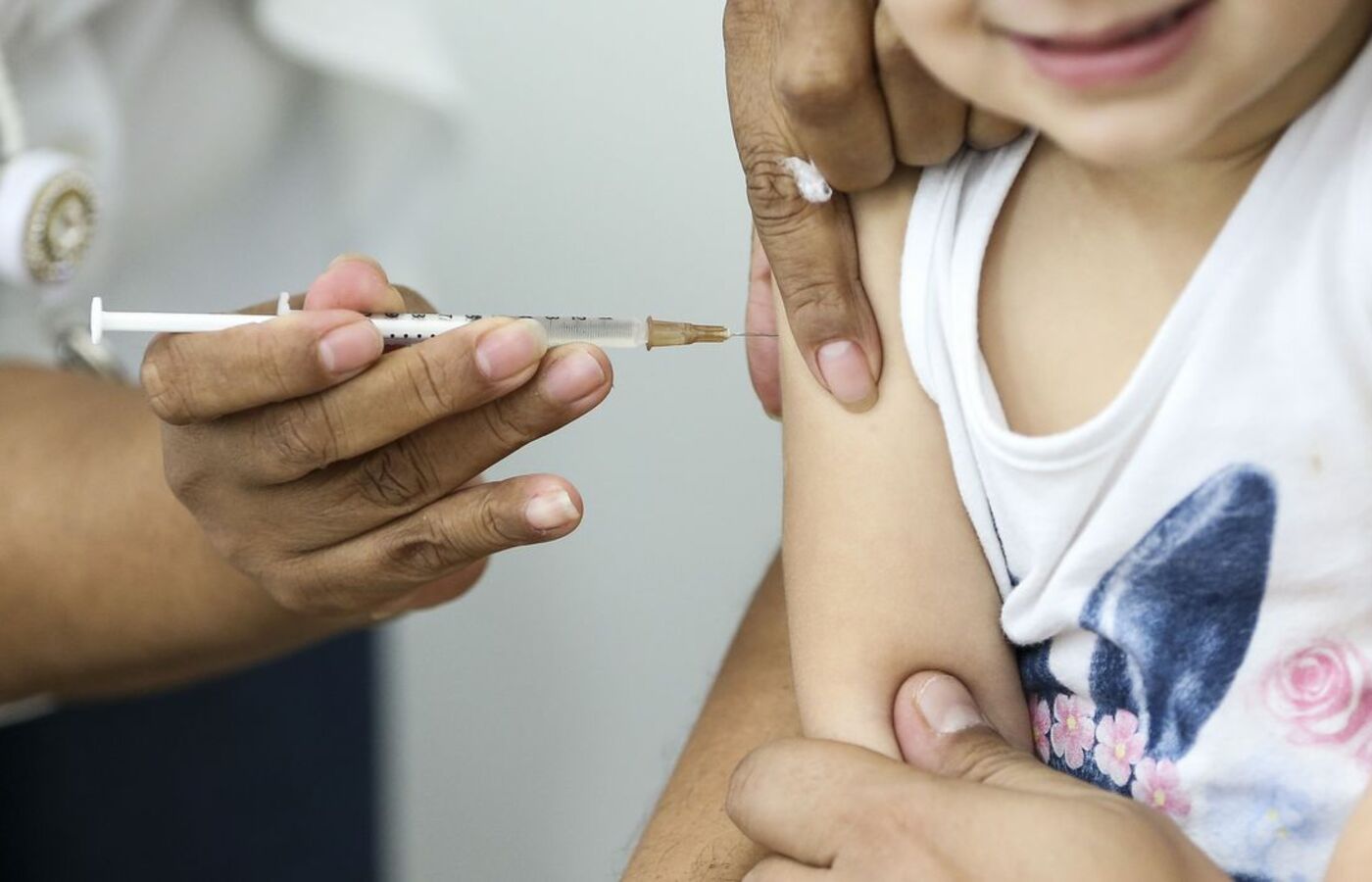After years of decline, vaccination rates among children have risen again. A survey conducted by the Child Health Observatory (Observa Infância – Fiocruz/Unifase) revealed that children under two years of age received an increase in vaccination in Brazil. The study analyzed four vaccines that doctors consider essential: BCG, polio, DTP, and MMRV. The results showed growth in coverage of this audience between 2021 and 2022.
Dr. Dalcy Albuquerque Filho, a specialist and member of the Brazilian Society of Tropical Medicine, says that this increase represents a positive result. However, for this number to continue to rise, it is believed that Brazil needs to make more vaccines available in all health units as well as increase the number of vaccination campaigns.
“We remember the Ze Gotinha campaigns in the early 1980s, when there were huge queues at the health units, and people were standing in queues. Today these campaigns are very weak, very few people go to them. So I think that is the whole point, which is “Raising awareness, being where people are, getting vaccinated. When in doubt, get vaccinated.”
The BCG vaccine – which protects against tuberculosis – was the vaccine that best achieved the goal. It rose by 19.7 percentage points and reached 99.5% of children in 2022. According to the survey, it was the only vaccine that obtained the minimum necessary vaccination coverage. The greatest growth was observed in the North region, while the Southeast recorded the lowest coverage at 92.7%.
Polio vaccination also grew by 19.7 percentage points, but failed to reach the minimum necessary vaccination coverage, between 90% and 95%. The index was 85.3% in 2022.
The diphtheria, tetanus, and pertussis immunization rate increased by 9.1 percentage points for children younger than 1 year. Coverage reached 85.5% in 2022. The North and North-East were the regions that led growth, but no region reached the 95% vaccination coverage target.
The MMRV vaccine – which prevents measles, mumps, rubella and chickenpox – has also seen an increase in immunization in children under two years of age, but has not yet reached the target. It grew by 3.5 percentage points, reaching 59.6% in 2022. The southern region was at the forefront of coverage with 70.6%, and the northern region recorded the lowest rate – 38.6%.
The importance of vaccination
Dr. Dalsey Albuquerque Filho explains that vaccination is perhaps one of the greatest advances in medicine in recent centuries. “Thanks to vaccination, we have been able to reduce or even eliminate a disease that has decimated the population throughout human history, caused consequences and even shortened the life expectancy of the population.”
For him, with the advent of fortification tools, many problems were left behind. “With vaccines, we were able, for example, to reduce yellow fever, which was a tragedy in Brazil, and smallpox, which was also a tragedy in Brazil and around the world, and which we even managed to eradicate,” he reveals.
The infectious disease specialist raises other positive points. He added: “With the vaccine, we are making sure that the body has a series of defense factors that prevent this disease, which had a very high probability of getting worse, and the worst outcome was death, the death of the patient.” Highlights.
Vaccination in the elderly
Dr. Dalsey Albuquerque Filho believes that vaccines are not only important for children. “We cannot forget the elderly with comorbidities. They are more fragile beings and also need to remain immune within the recommended vaccination schedules.
The specialist also adds: “People who use immune-suppressing medications should also, according to their doctor’s instructions and treatment, remain immunized to avoid contracting these diseases and, if this happens, to avoid complications and deaths.”
Guidelines
The doctor says that to avoid complications when you do get sick, the recommendation is simple: “Get vaccinated and keep your child’s vaccination schedule strictly up-to-date, within the recommended dates. Take your child to a health center for vaccination and keep their calendar up-to-date within the National Immunization Program of the Ministry of Health.
But it highlights the importance of increasing the number of vaccines available in all health units and also expanding campaigns. “It is important to work in places with large crowds, at parties, at football matches, everywhere and with sensitive people and playing games to attract children and everything else,” he mentions.
Medical law lawyer Ana Lucia Boaventura issues a warning. “Vaccination is mandatory not only for children, that is, parents must take their children for vaccination as well as for adults. Of course, no one will enter a person’s home and force him to be vaccinated, but we must understand that some rights may be restricted due to non-vaccination.”
If parents do not take their children for vaccination, the lawyer explains: “They may begin to have restricted rights regarding school enrollment, access to the Bolsa Familia program and so on. So, the vaccine is mandatory, yes, obviously, not in a coercive way, but in terms of restricting these rights, because the point of mandatory vaccination is not just to protect the individual who is going to receive the vaccine, but it is a collective health issue.

“Wannabe internet buff. Future teen idol. Hardcore zombie guru. Gamer. Avid creator. Entrepreneur. Bacon ninja.”

